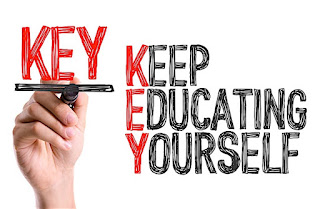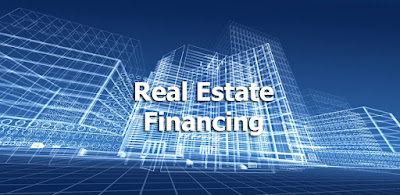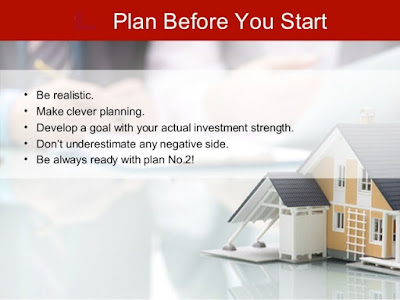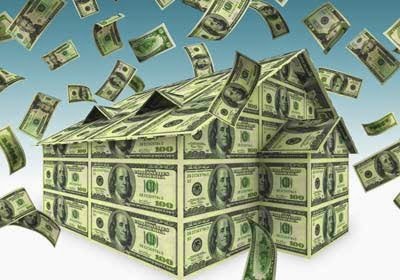

Do You Have An Eye For REI?
Do you have an eye for REI? Can you spot a great deal 1000 miles away? Then you have what it takes to be successful in real estate investing?
If you are a newbie and can do this, you have entered into the REI territory properly by educating yourself through podcasts, publications and people that have helped you lay the groundwork to be successful. If you are a seasoned investor with an eye for REI, you have acquired knowledge from being active in the world of real estate investing and have developed a strong hand in it. Perhaps you learned from trial and error, but you gained experience and that has made you even more successful. So how does one take themselves from having an eye to having a hand? Through education, wherewithal, planning, knowledge, perseverance and yes, instinct.
Malcolm X said that "education is the passport to the future, for tomorrow belongs to those who prepare for it today". Getting an education in REI can certainly pave the way for a brighter future in it. Real estate investing is not a "get quick rich" scheme but more of a calculated risk to reward, so one must know the fundamentals to achieve their goals favorably. This comes through reading books, blogs and articles and listening to podcasts, mentors and the news. Learn the real estate terms including the ones that use calculations like NOI, ROI, Cap Rate, DSCR, LTV, COC, ARV, PITI among many others. Knowing what they mean and how they are calculated can help you evaluate a property that you are considering. Reading about various real estate topics and strategies will help you best determine what approach you would like to take. Ask yourself: "Am I interested in residential, industrial, commercial, retail or mixed use?". Am I looking to buy and hold or fix and flip or maybe even adopting the BRRR strategy? Is it Single Family Residences (SFRs) or Multi-Family Residences (MFRs) that interest me, or something else?" Understand the tax benefits available to Investors, for example a 1031 Exchange allows an Investor to reinvest the proceeds of a sale into a new property and defer capital gains, but you must find a new property in 45 days and close in 180. (Always consult your tax professional on these subjects to ensure your full understanding!) There are so many ways to invest in real estate, but it pays to do your homework before committing your finances.
Speaking of finances, having the werewithal to invest in real estate is a very important factor. As we have all heard, it takes money to make money. While it would be ideal to pay with cash, most of us don't have that luxury. So we must turn to alternative financing. It's most beneficial to have a good credit rating and a bank account that shows a positive financial history. If you have little or no money, but have ideas, crowdfunding, adding partners to your venture, leasing to buy, or someone cosigning a loan may by alternative ways to invest. Of course there is always hard money/private lending that is traditionally used on flips, but being that the interest rates are so high, these should only be considered if you have the wherewithal to repay quickly. To quote the old addage: nothing ventured...nothing gained! If you are serious about investing in real estate, don't have the cash to pay for it but have good credit, try contacting a few Lenders. There are several different types of loans out there including fixed rate, adjustable rate, FHA, FHA203K loans (if you are buying a damaged or older home and doing repairs on it), VA, USDA Rural, Development, HELOC and Bridge Loans. The idea here is to familiarize yourself with them as you may qualify for different ones throughout your REI journey. Knowing what you qualify for can help you plan your course of action.
I've heard that a goal without a plan is just a wish. So don't just wish to invest..invest and make your wishes come true! But do it with proper planning. First off, determine what type of property you prefer. Then, and maybe the most important, is location...location...location. (Heard that before?) You must learn all you can about a neighborhood, paying close attention to attributes such as it's growth in new construction, number of properties being rehabbed, cash flow, job market and the types of buyers/renters it attracts. That's why many Investors, here in Pittsburgh for example, are looking at the Lawrenceville/East Liberty areas, as they have seen a huge uptick in these factors mostly due to the tech industry boom here. But there are other areas in Pittsburgh proving profitable and this same scenario can be found in many other US cities. However picking the wrong property in the wrong location will drain your bank account so choose wisely. After you have picked a location, hone in on those properties that offer positive cash flow. Learn evaluation techniques used to determine if a property is suitable for your investment portfolio. A shared opinion is that cash flow and ROI are most important followed by Cap Rate and Cash on Cash Return. So with taking into consideration the purchase price, closing costs, inspection, appraisal and potential rehab costs, look at monthly expenses like the mortgage payment, property tax, insurance, property management (if applicable), HOA fees (if applicable), maintenance, vacancy percentage and any utilities you may be paying. Of course, it's important to have the basic information such as number of units including configuration, current rents, GOI and NOI. There are many calculations that affect the most informed and calculated decision. While comparables are typically used on a single family residence, the income approach is more suitable for rentals and a cost approach is advisable for new construction. Look at the 1% rule to gain a good monthly rental income. I personally feel that also having an RPR, Realtor Property Resource, report can be effective in analyzing properties as it's a more comprehensive look at real estate data and analytics. And by all means talk to experienced investors and real estate professionals. The bottom line is that a lot of planning goes into evaluating before you purchase. And periodically reevaluating a purchased investment's performance provides experienced investors with cost saving knowledge.
You may feel that knowledge is the same thing as educationbut while education is the formal process of learning, knowledge is the informal experience gained from real life experiences. Benjamin Franklin said that "An Investment in knowledge pays the best interest" and I couldn't agree more. You have to experience real estate investing to develop your skills. For example, many experienced Investors create an LLC or LP for REI, mostly for protecting their personal assets in case anything like a lawsuit should ensue, but also for other reasons. Should you ever face financial hardship in the future, always hope for the best but plan for the worst. In addition, many Investors have found that the support of others has proven invaluable. Things like discussing issues with others in real estate investment forums or meetups, consulting a Tax Accountant or Real Estate Attorney, or turning to a Realtor to help them purchase a property are invaluable. Of course there are other ways of acquiring properties such as through a Wholesaler, FSBOs, auctions and other off-market avenues. You just have to choose the one you feel would benefit you the most. Again, many investors have found that "no man/woman is an island" so they rely on a pool of people including property managers and contractors. Also, your focus and interests could change as you gain knowledge, so be prepared to adapt and roll with it. Maybe, at first, you house hacked, but now you want to move onto other multis that don't require you to live in them for a year. Or maybe you became a landlord only to find that it was too much, and you would rather look at SFR's to buy and hold or fix and flip. Or maybe now you are ready to enter into the commercial side of real estate. All of those decisions are made with the knowledge you gain through experience, commitment, perseverance and instinct.
As an investor in real estate, you may have endured some, if not many, obstacles and pitfalls during your journey, but you have overcome them through perseverance. You have succeeded because you corrected errors, learned from them and possessed the determination to move forward. REI is not easy and if it were everyone would do it. You must have the commitment to persevere through obstacles like evictions, hostile tenants, delayed payments, high repair costs and stress over making the numbers work. But you can and must do it to be successful in real estate investing. An intangible asset to have is instinct. You know how something just doesn't feel right or is just too good to be true? Well there's a reason for that, so go with your gut feeling. It's great to take formal education and combine it with acquired knowledge to make your decisions. In addition, possessing a sense about things that are not learned can empower you to either run away from disaster or to seize an opportunity and act quickly.
Now with everything said, thus far, I just want to say that this is a somewhat limited description of topics to consider when investing in real estate. There are so many more points, more terms, and more strategies that go into the education, wherewithal, planning/property evaluation, knowledge and perseverance/instinct that this blog hasn't covered. But if you have the basics, and are willing to learn more and more every single day, you will turn your eye for REI into $$$$. Good Luck!!











Comments